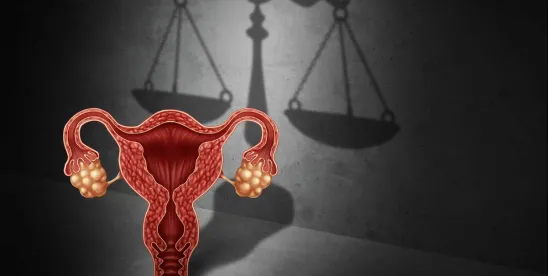On April 24, the United States Supreme Court heard oral arguments in Idaho v. United States, a challenge to Idaho’s abortion prohibition. This case comes in the wake of the Supreme Court’s Dobbs v. Jackson Women’s Health Organization decision in 2022, which, overturning Roe v. Wade, states that the U.S. Constitution does not confer a right to abortion.
The Idaho statute, also called the Defense of Life Act, criminalizes abortions but contains certain exceptions for the life of the mother, rape, and incest. The federal controversy arose out of Centers for Medicare & Medicaid Services (CMS) guidance published July 11, 2022 (Guidance), in the immediate aftermath of Dobbs. The Guidance reminded hospitals of their obligations under the Emergency Medical Treatment and Labor Act (or EMTALA). EMTALA requires hospitals to provide a medical screening examination and stabilizing treatment to any patient who presents to the hospital with an “emergency medical condition.” The Guidance was meant to reiterate to hospitals that EMTALA applies to women in labor and that, for some women in labor with an emergency medical condition, the required stabilizing treatment may include abortion. The Guidance also emphasized that hospitals could not use state law, such as Idaho’s statute, to either (i) refuse to provide abortion as an option (if abortion was a stabilizing treatment for the patient) or (ii) transfer women to another facility (if the hospital was unwilling to provide an emergency abortion). The Guidance further clarified that EMTALA preempts contrary state laws that would prohibit emergency abortions. After publishing the Guidance, the Department of Health and Human Services (HHS) and CMS sued the state of Idaho for an injunction against the enforcement of Idaho’s laws on abortion. The district court granted the injunction, which the Ninth Circuit refused to stay, and appeal was made to the Supreme Court. It should also be noted that the state of Texas initiated its own lawsuit against HHS Secretary Xavier Becerra to enjoin enforcement of the Guidance against Texas hospitals. That injunction was also granted and later affirmed by the Fifth Circuit. The Texas case was not appealed and consolidated with the Idaho dispute, though Texas participated with other states in submitting an amicus brief in support of the State of Idaho.
Justices Sotomayor, Kagan, and Jackson focused on the potential outcome that abortion would be unavailable if death were not certain or imminent. Justices Alito, Thomas, Kavanaugh, and Gorsuch focused on the state of Idaho’s argument regarding fetal personhood, a theory that a human fetus should have the same rights and protections as any other person. In addition, these justices expressed concerns about the Guidance’s ability to override the protections of the conscience of physicians who might be obligated to perform abortions contrary to their own religious, ethical, or moral values. Justice Coney Barrett and Chief Justice Roberts asked probing questions of both sides.
This case illustrates that, even as the issue of abortion returns to the political process, litigation will remain part of the landscape in specialized cases going forward. The Idaho case touches on similar issues in litigation surrounding exceptions for emergency abortions in other states, such as Texas.
A decision and opinion on the case may come in June, potentially arriving alongside a decision in the recent case challenging the Food and Drug Administration’s approval of mifepristone, an abortion-inducing medication.



 />i
/>i
